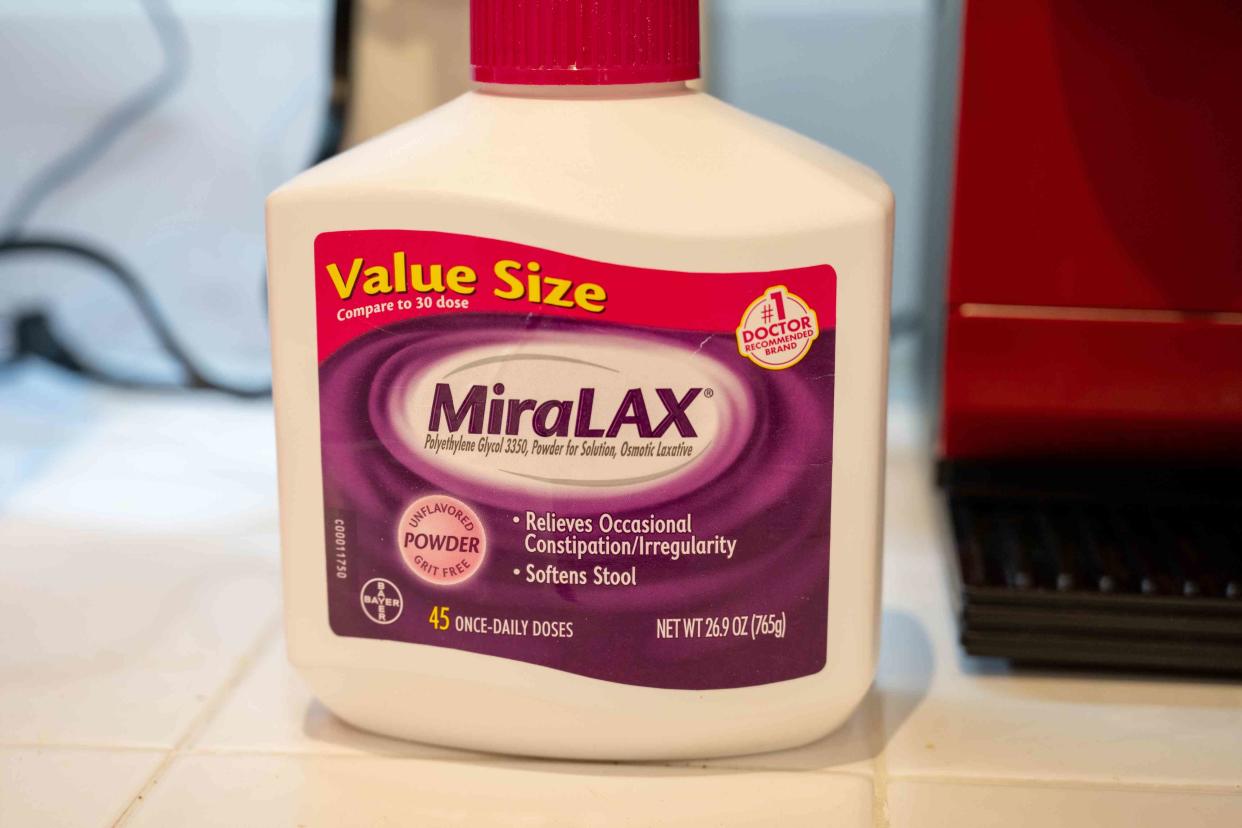What Happens If You Take Laxatives Every Day?

Smith Collection / Gado / Getty Images
Key Takeaways
More Americans are relying on laxatives for having regular bowel movements.
Gastroenterologists say they don't recommend laxatives as a first-line treatment for constipation. Instead, increasing fiber in your diet, drinking plenty of fluids, and exercising usually help.
Laxative abuse can lead to severe dehydration and electrolyte imbalances, worsen constipation, increase the risk of UTIs, and damage the organs that interact with the digestive tract.
Constipation is turning into a booming business opportunity in the United States, with Americans spending hundreds of millions of dollars on laxatives each year.
According to a Wall Street Journal report, the habitual use of laxatives has even contributed to a shortage of polyethylene glycol 3350, an osmotic laxative that helps soften the stool.
Although laxatives can treat constipation, healthcare providers don't always recommend them as a first-line treatment.
“I would try increasing fiber in the diet, exercising, and drinking plenty of water first before trying laxatives,” Bryan Curtin, MD, MHSc, a board-certified gastroenterologist based in Baltimore, MD, told Verywell in an email. “For most patients, keeping hydrated, eating at least 20g of fiber a day, and exercising regularly will stave off constipation."
A fiber-rich diet promotes regular bowel movements because fiber can add bulk to stool, making it softer and easier to pass. Nuts, seeds, whole grains, fruits, and vegetables are all good dietary sources of fiber.
However, diet and exercise aren't the only factors that can influence constipation. Irritable bowel syndrome, problems with anorectal muscle coordination, and neuropathy or myopathy of the colon can all cause constipation, according to Curtin.
Aging can also contribute to constipation, especially for older adults who may not be very mobile or rely on certain medications.
Two Types of Laxatives
Osmotic and stimulant laxatives are the most common over-the-counter laxatives. Osmotic laxatives, like MiraLAX, make stools soft by keeping water in the colon, while stimulant laxatives cause the intestine walls to contract which leads to a bowel movement.
When Should You Use Laxatives?
Most of the time, you probably don't need to use a laxative. Simple changes like increasing your water intake, exercising, and eating more fiber-rich vegetables can help relieve constipation.
“There is no definition of regular bowel habits because some people go every day, some people go every other day. Some people go three times a day, or three times a week,” Lisa Ganjhu, DO, a gastroenterologist at NYU Langone Health, told Verywell.
If you have chronic constipation, which is associated with at least three months of infrequent bowel movements, your healthcare provider may prescribe a laxative.
"Some people have to take it every day if they've got chronic constipation," Ganjhu said.
People with chronic constipation have likely been on a "lifelong journey of trying to find products to help them go," Ganjhu said.
Daily laxatives might be a treatment option for some people when high-fiber diets and fiber supplements fail. But you shouldn't start a daily laxative regimen until you've spoken to your doctor, Ganjhu added.
"Any changes in your bowel habits should be evaluated," she said.
Related: How Quickly Do Laxatives Work?
Should You Use Laxatives Every Day?
Chronic constipation may not be the only reason people are taking laxatives. Misinformation on TikTok is encouraging younger consumers to take daily laxatives for "healthy bathroom behavior" and even weight loss, according to the WSJ report.
While some people might be prescribed a daily dose of laxatives based on their symptoms, it's not safe for everyone to take laxatives every day, according to Shaheer Siddiqui, MD, a gastroenterologist at the Memorial Hermann Medical Group in Houston, Texas.
"Younger people might be using laxatives for weight loss, which is definitely not recommended," Siddiqui told Verywell in an email. "Laxatives can cause diarrhea and hence can cause medical problems, including dehydration and electrolyte instability."
There's a misbelief that laxatives can help flush out food and calories before they're absorbed, according to the National Eating Disorder Association.
But instead of losing calories or fat, laxative-induced bowel movements purge water, minerals, electrolytes, and indigestible fiber and wastes from the colon. Even if you feel lighter, the weight will return as soon as you drink liquids and rehydrate the body.
Laxative abuse can also worsen constipation, increase the risk of urinary tract infections (UTIs), and damage the organs that interact with the digestive tract.
"Ultimately, your GI tract can become addicted to it so that you can't have spontaneous bowel movements and you're gonna get yourself in worse trouble," Ganjhu said.
Read Next: Natural Constipation Remedies
What This Means For You
If you notice a change in your bowel routines, consider talking to a healthcare provider before taking a laxative. Laxatives cannot help with weight loss, but abusing these medications can lead to dehydration, electrolyte imbalance, and other health issues.
Read the original article on Verywell Health.

